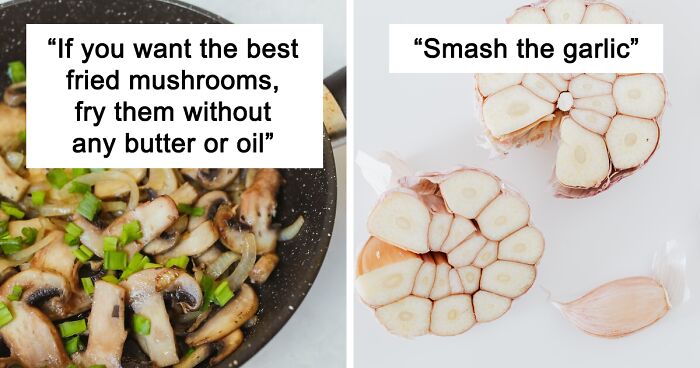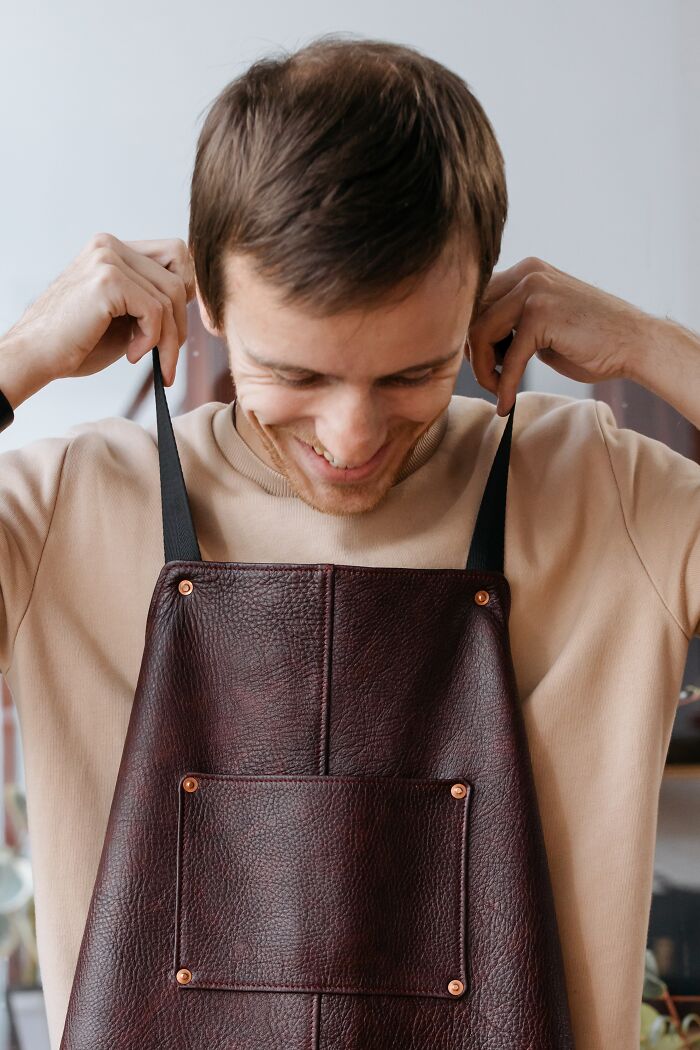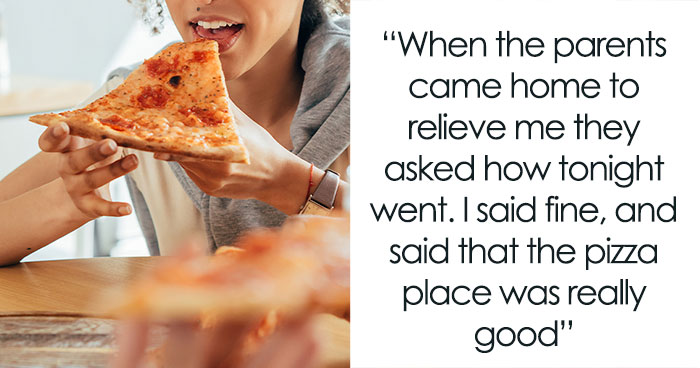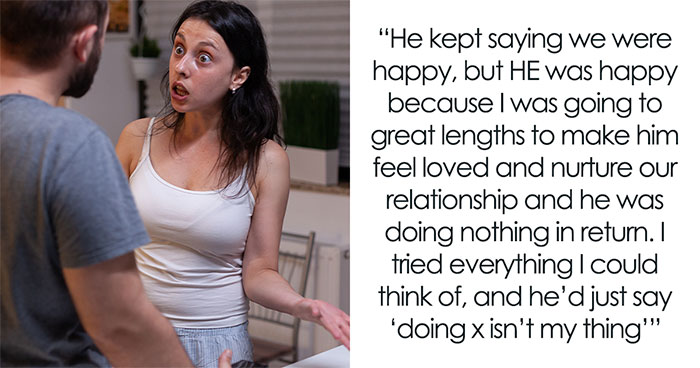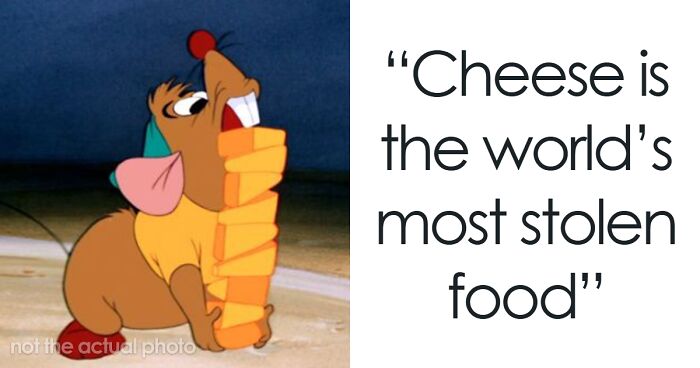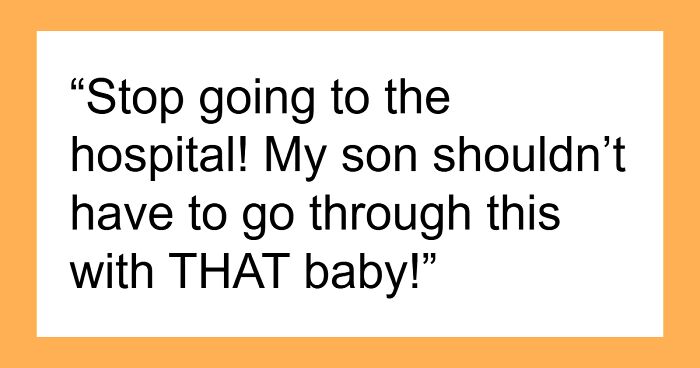Anyone who’s ever set foot in a kitchen can tell you that cooking is a learning process. Whether you effortlessly whip up Michelin-worthy plates in no time or, on the contrary, hesitantly swirl around and manage to burn everything you come in contact with, it's a skill that takes time to master. But it’s oh-so-rewarding when you prepare a mouth-watering dish that makes everyone squeal in excitement. And while you need proper practice and techniques to do it well, you can always benefit from the handy little tricks of others.
If you want to up your culinary game right away, this thread posted on the 'Cooking' subreddit has got you covered. "What is the single greatest cooking tip you ever got?" asked Redditor profligateclarity and invited hundreds of cooking enthusiasts to share their helpful advice.
People immediately typed out the things that changed and improved the way they approach food. We’ve gone through the thread and hand-picked some of the best responses to help you impress everyone at your next dinner party. So scroll down for some delicious nuggets of wisdom and upvote the ones you agree with most. Keep reading to also find an in-depth interview with food and travel blogger June d'Arville. Be sure to let us know which kitchen tips and tricks you find most useful in the comments, we’d love to hear them!

This post may include affiliate links.
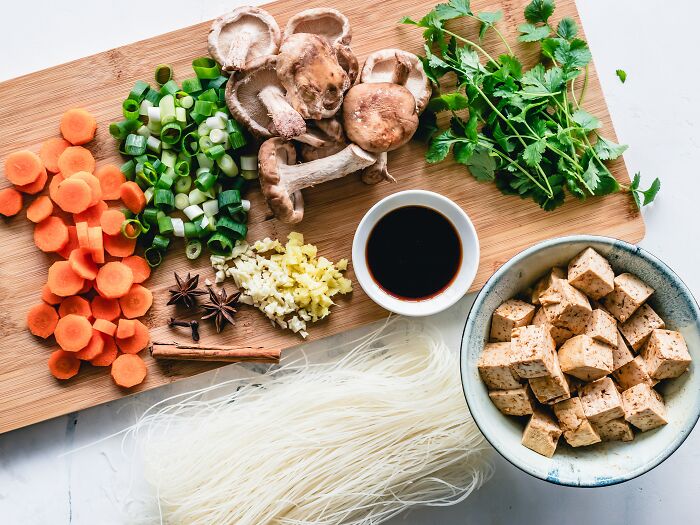 Gather all your ingredients before you begin. Read all the directions before you begin.
Don’t begin until you know what you’re doing.
Advice from my grandmother
Gather all your ingredients before you begin. Read all the directions before you begin.
Don’t begin until you know what you’re doing.
Advice from my grandmother
I thought this was common sense till I saw my brother make waffles and not realize we don't have milk until he already pourd all the ingredients in the bowl
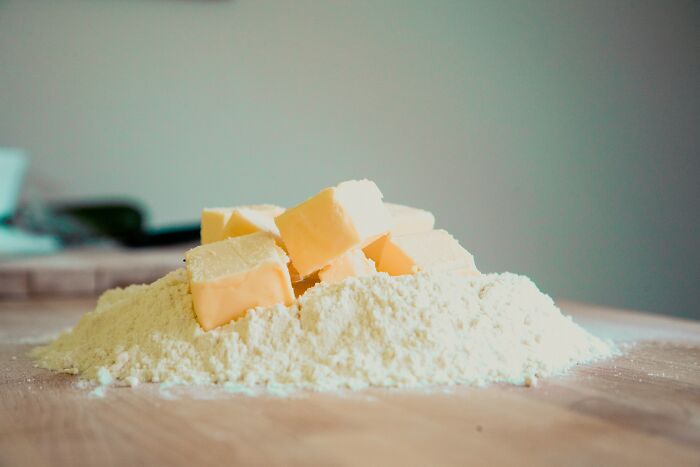 It's a baking tip:
If you're going to be cutting butter into some kind of pastry (scones, pie crust, etc) **freeze the stick of butter and grate it**. It makes everything SO much easier. I'll never ever go back to the older method of cubing the butter and then endlessly trying to cut it into smaller pieces etc. Plus doing that takes so long half the butter melts. Using the grated butter means I only have to spend about a minute mixing everything together so it's much easier to avoid overworking the dough. Puffy scones, flaky crusts.
It's a baking tip:
If you're going to be cutting butter into some kind of pastry (scones, pie crust, etc) **freeze the stick of butter and grate it**. It makes everything SO much easier. I'll never ever go back to the older method of cubing the butter and then endlessly trying to cut it into smaller pieces etc. Plus doing that takes so long half the butter melts. Using the grated butter means I only have to spend about a minute mixing everything together so it's much easier to avoid overworking the dough. Puffy scones, flaky crusts.
If you bake often, it's worth freezing a couple of sticks of butter, grating them all in one go, and putting it back in the freezer in a ziploc bag. Just weigh out as much as you need each time. Especially useful if you like spur-of-the-moment flakey biscuits. If you're doing cheese scones, freeze your grated cheese.
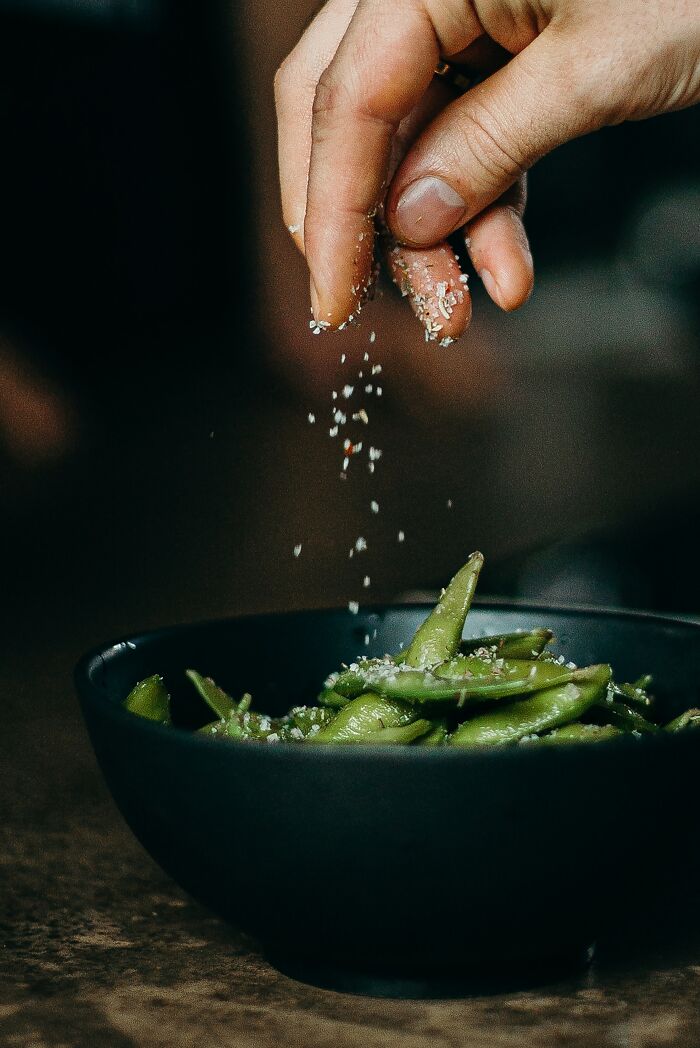 Season, season, season.
I am gobsmacked at how people will sometimes proudly proclaim to me that they cook with no salt. Aah, that's why your food tastes like cardboard.
Season, season, season.
I am gobsmacked at how people will sometimes proudly proclaim to me that they cook with no salt. Aah, that's why your food tastes like cardboard.
Some of us have hypertension. It is perfectly okay to season without salt. So many herbs and spices...
Whether it's the proper way to prepare your ingredients or genius fried mushroom and baking tricks, the Redditor’s question sparked an informative discussion that almost serves as a crash course in culinary knowledge. After all, everyone has a different relationship with cooking and brings their own lifetime of experiences and perspectives into the picture. But no matter how competent in the kitchen you may feel, there are always benefits to learning something new. For example, the Redditor kicked off the thread by revealing they always overcook everything — steak, chicken, eggs, etc. — to the max.
Since they enjoy creating delicious meals, they decided to look for a way to fix this mistake and boost their skills along the way. They turned to the culinary master Gordon Ramsay who explained in a video that food still continues to cook, even off the heat. "Mind was blown," the user wrote. "I now turn the flame off, flip it over, and let the food sit in the pan for a few minutes, no flame. Total game changer in terms of not overcooking everything."
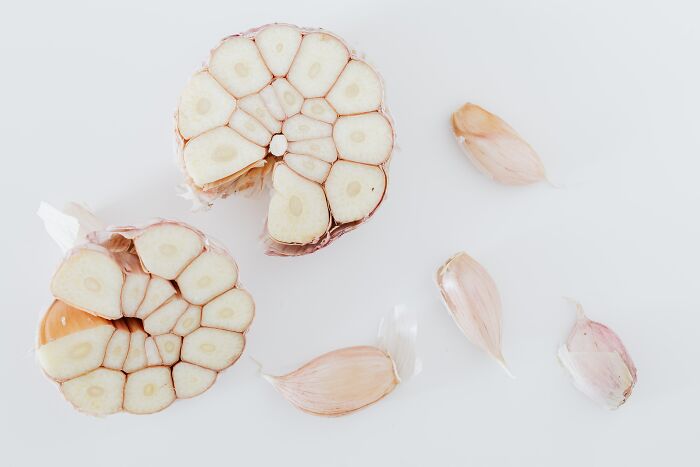 Smash the garlic. It makes peeling and cuting it way easier/faster. Plus you get to smash the garlic. 10/10
Smash the garlic. It makes peeling and cuting it way easier/faster. Plus you get to smash the garlic. 10/10
Hahaha! That's why I like CHOPPING vegetables! Bad day? Chop chop! Stupid argument? Chop chop! 🤣🤣
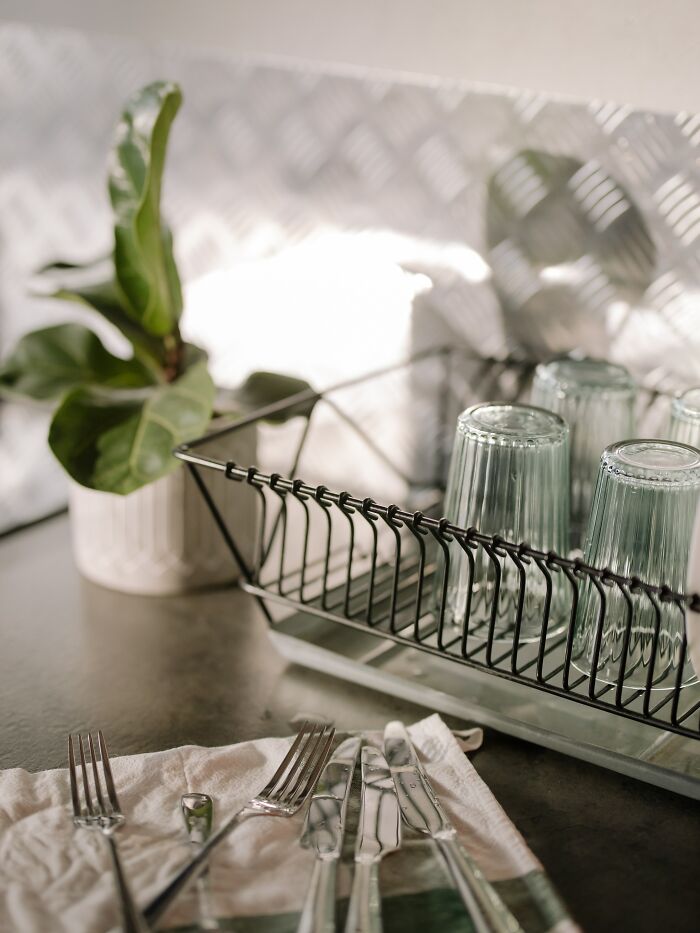 Clean as you go. Nothing worse than cooking a lovely meal and having a giant sink of dishes w waiting for you. I make sure I have an empty dishwasher before I start cooking and then every dish I dirty while cooking goes straight into the dishwasher. Once we are done eating the only plates to clean are the ones we ate off and any pots that need a scrub. It takes so much pressure off to clean as you go.
Clean as you go. Nothing worse than cooking a lovely meal and having a giant sink of dishes w waiting for you. I make sure I have an empty dishwasher before I start cooking and then every dish I dirty while cooking goes straight into the dishwasher. Once we are done eating the only plates to clean are the ones we ate off and any pots that need a scrub. It takes so much pressure off to clean as you go.
I got in the habit of doing this when I didn't have a dishwasher and it really does make life easier. I just didn't want to deal with a big pile of dishes on top of having cooked.
To learn more about the joys of cooking and the ups and downs that inevitably arise in this journey, we reached out to Belgian food and travel blogger June d'Arville. Feeling a burning passion for everything kitchen-related ever since she was a child, June co-runs a blog with her husband called Luc & June that’s filled with pictures of delicious-looking food, fascinating stories, and advice on interesting travel destinations around the world.
As long as June can remember, she has always been interested in food and flavor combinations. So we were curious to hear her take on whether passion for cooking is something we’re born with, or is it a life-long process we cultivate throughout the years. "We are all born without knowing what taste or flavor is," she told Bored Panda. "You grow up trying out several foods along the way, especially when you are a small kid. Some you like, some you don’t like at all."
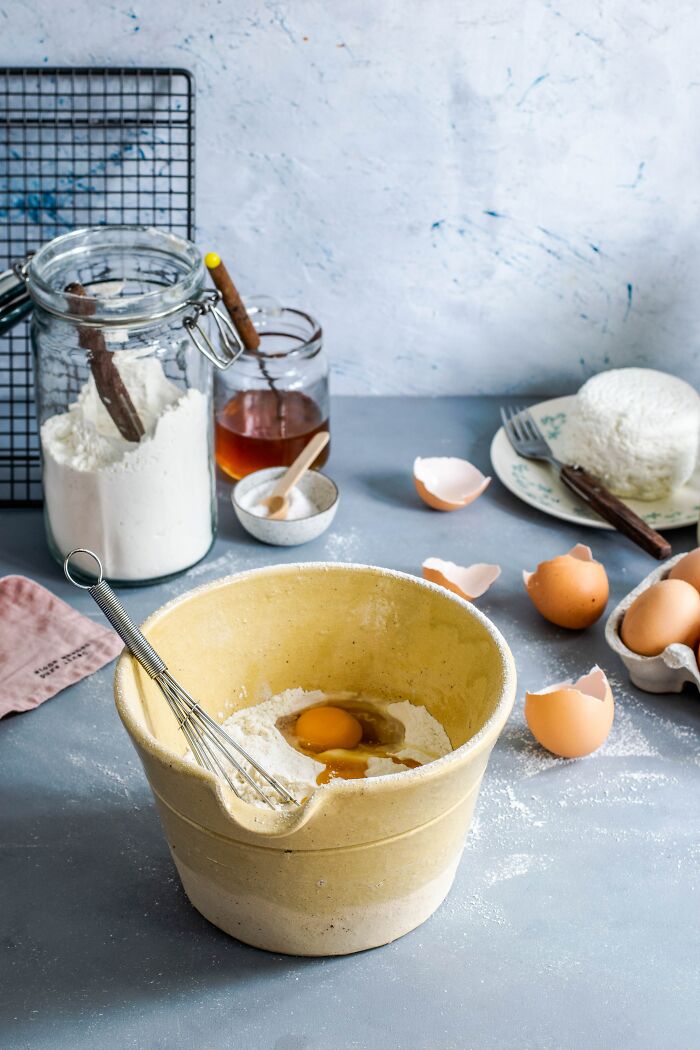 Cooking you can pretty much do with your heart, but baking recipes are architectural plans and every ingredient is a load bearing structure. You can make changes, but you better know what you are doing
Cooking you can pretty much do with your heart, but baking recipes are architectural plans and every ingredient is a load bearing structure. You can make changes, but you better know what you are doing
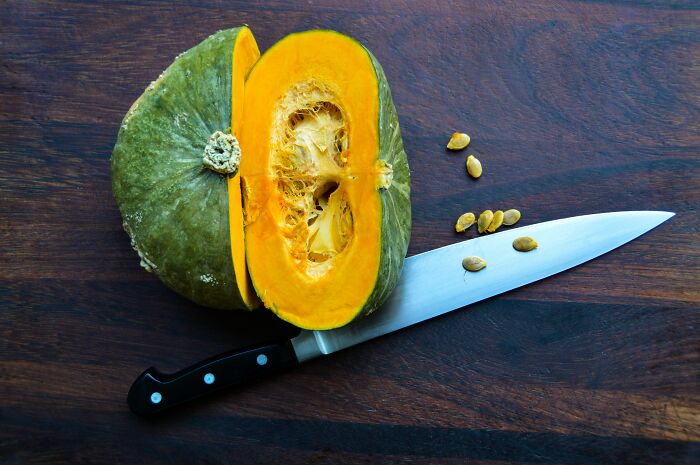 The thing I learned it, a good sharp kitchen knife makes cooking more fun and even if you think your knife is sharp enough it probably isnt. Made all the difference for me.
The thing I learned it, a good sharp kitchen knife makes cooking more fun and even if you think your knife is sharp enough it probably isnt. Made all the difference for me.
Alton Brown said it best when it comes to scrambled eggs (and the same is 100% true for bacon); if it looks cooked in the pan, it will be over cooked on the plate. That was a huge one for me.
I can't stand overcooked scrambled eggs. They should be lovely soft curds, not packing peanuts.
The food blogger pointed out that parents can be very instrumental in raising a child in a world of flavors and different foods. However, she added that not everyone gets that head start when it comes to food and cooking. "But even then, you can always change that if you are interested, excited and eager enough to learn more when you grow older."
Never cook something for the first time for an event. Try that new recipe out ahead of time.
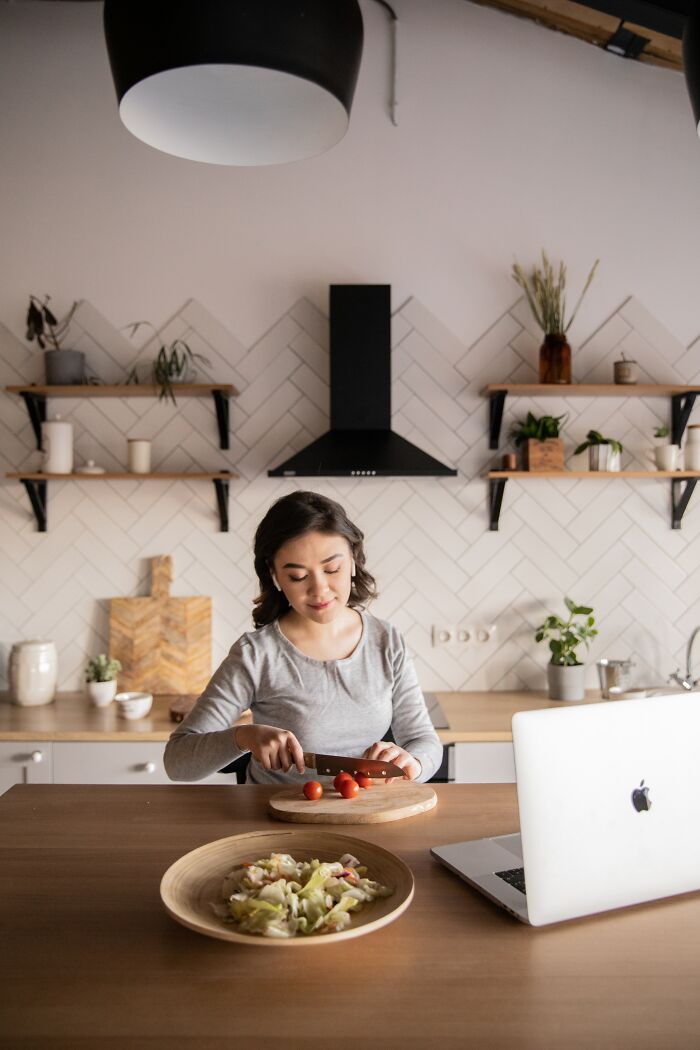 READ THE COMMENTS of the recipe if you find it online. Of course you have to sift through the people who think half n half is spicy, buuuut there’s usually a lot of good feedback.
READ THE COMMENTS of the recipe if you find it online. Of course you have to sift through the people who think half n half is spicy, buuuut there’s usually a lot of good feedback.
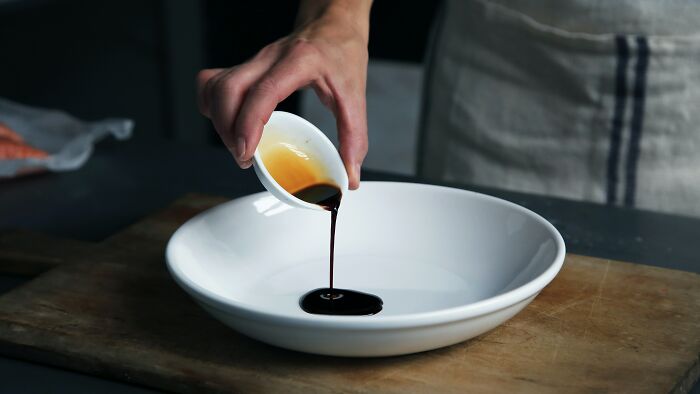 Sometimes when a dish is missing something, it's not more salt but something acidic like lemon juice. Vinegar can also add a lot
Sometimes when a dish is missing something, it's not more salt but something acidic like lemon juice. Vinegar can also add a lot
"I grew up in a vegetarian family. Once I turned 18 and left the house, I didn’t have a clue how to cook a steak, or how a chicken breast was cooked. But I was eager to learn and to start exploring new flavors and cooking skills," she said. Improving your culinary skills can open doors to brand new experiences, and expanding your palette is always exciting. Just think about the colorful cuisines of other cultures you haven’t tried yet, and the exciting adventures awaiting with every meal you decide to test out.
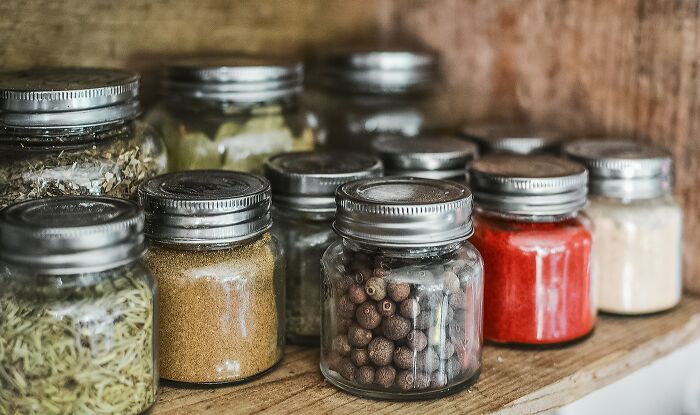 Use freshly grind pepper and not the powder. It's true in general that freshly grind spices taste better (and/or smell better) but for pepper it is a difference between night and day.
Use freshly grind pepper and not the powder. It's true in general that freshly grind spices taste better (and/or smell better) but for pepper it is a difference between night and day.
I grew up in Southern California and have owned a catering business. My greatest failure in the kitchen was always that I simply could NOT make corn tortillas. They were awful no matter what I tried. Then I found an article online that mentioned the masa being the consistency of play-doh. 80’s kid lightbulb went off in my brain, and now I make tortillas better than my Mexican mother in law.
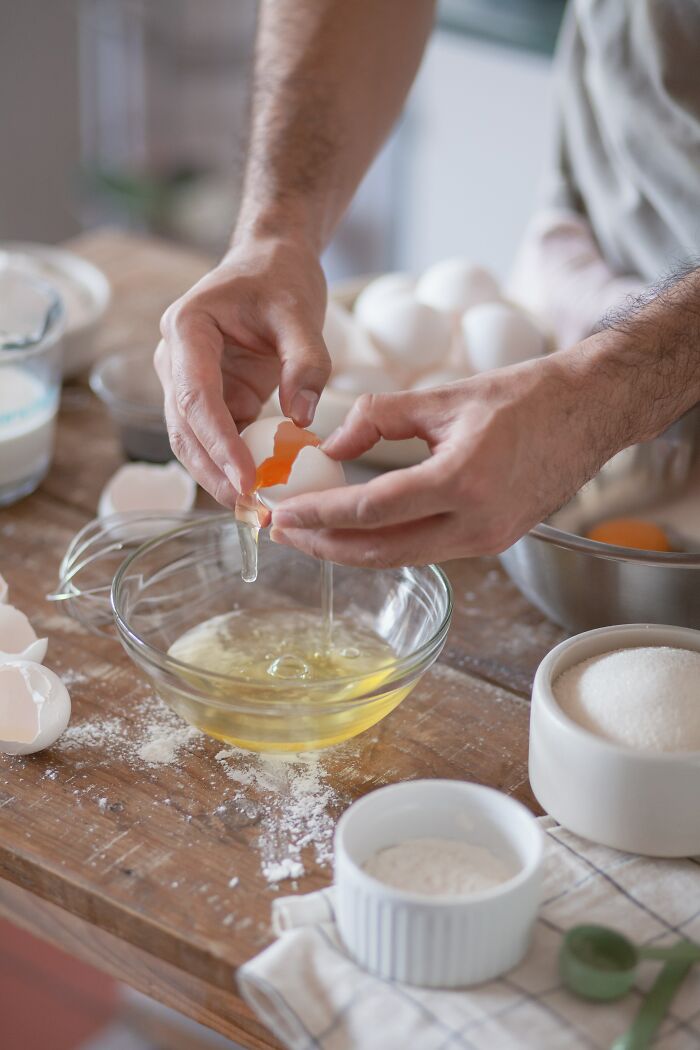 Don't whisk eggs in a circle, whisk them in a back and forth motion. I can still hear chef saying "You're chasing the eggs around the bowl!" when we did it wrong.
Don't whisk eggs in a circle, whisk them in a back and forth motion. I can still hear chef saying "You're chasing the eggs around the bowl!" when we did it wrong.
People sometimes say that the beauty of cooking at home often lies in the improvisation and experimentation in the kitchen. But if you’re a novice cook who feels overwhelmed by myriads of rules and techniques, you may be hesitant to go all adventurous with your meals. If you describe your cooking skills as "fine" at best but feel this sizzling desire to elevate your culinary know-how, June has a few pieces of advice to help you out.
According to her, even the smallest tweaks and changes can make a positive impact on your cooking. For example, "Getting organized and prepping your ingredients before you start cooking is essential. Timing as well, know how long it takes to cook each component of your meal."
"Seasoning is another part of cooking that is underestimated," she continued. "You can make a meal so much more exciting by adding a touch of salt or spices and fresh herbs. It lights up food, makes it vibrant and so much more enjoyable."
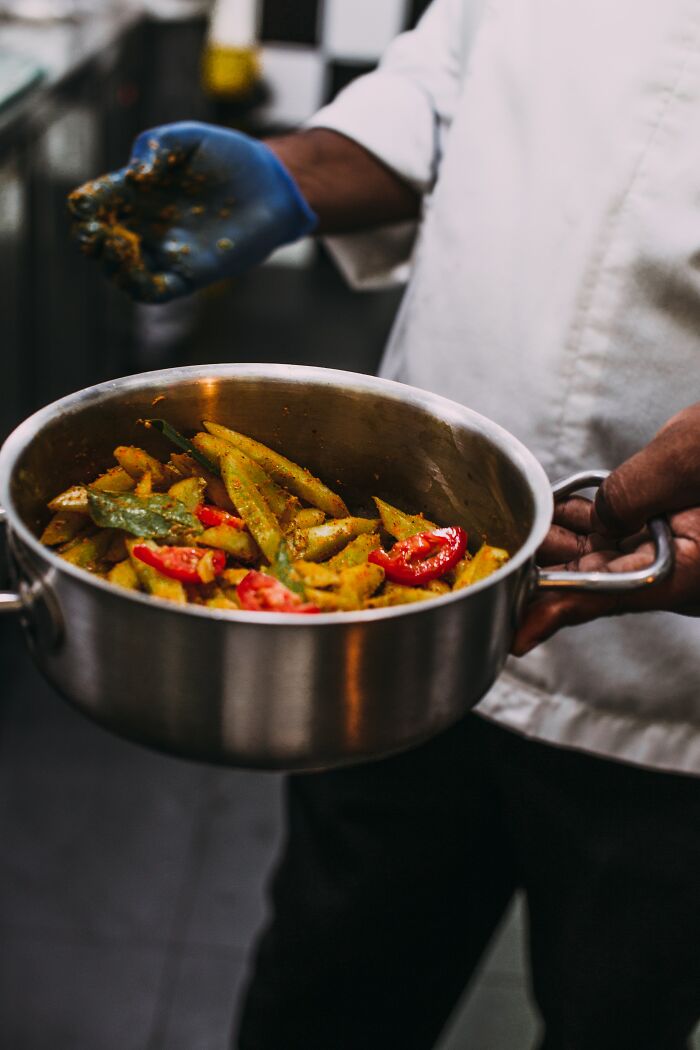 Let the stainless heat up before putting ANYTHING in it.
Let the stainless heat up before putting ANYTHING in it.
Especially Salt! When I bought my stainless pans, the seller advised to always boil the water before adding salt to it. If you put salt in cold water and then boil it, the pan wil very quickly turn dark on the inside. If you wait until the water is boiling before you add salt, nothing happens. My pans are now about 33 years old, and they still look the same as the day I bought them.
1) Clean as you go. 2) If you're breading anything, always keep one hand dry at all times. 3) Always lay a protein away from you in a pan to prevent any splash back on you. 4) Wear gloves when you handle hot peppers. I don't care how high your tolerance is for spice, you do NOT want to touch your eyes later or, god forbid, go to bed with your partner later and remember when it's too late "oh yeah, I chopped a bunch of Serranos earlier."
If you ever feel discouraged or inept in the kitchen, "Don’t give up", June said. "See cooking as a learning curve, not a job that you have to get right every single day. Perhaps it is best to focus on one cooking skill only that you want to improve, such as baking, making fresh pasta, or cooking Thai dishes. Read about it, watch cooking videos, write down what you do, and try again to see how you improve," she advised.
I don't think this is the single greatest tip, but it's something I've only been doing for a few years and have no idea why I didn't start earlier - I add notes to my recipes saying *exactly* which bowls and pans I use. I just made some Pots de Creme and discovered I didn't have bowl notes. Then discovered that I pulled too small a bowl - lots of splashing. Now I'll never do that again - even if I don't make it for another year!
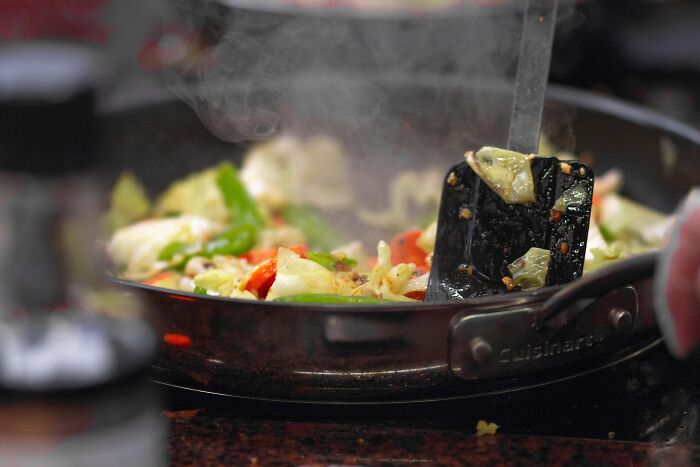 Don’t crowd the pan.
Don’t crowd the pan.
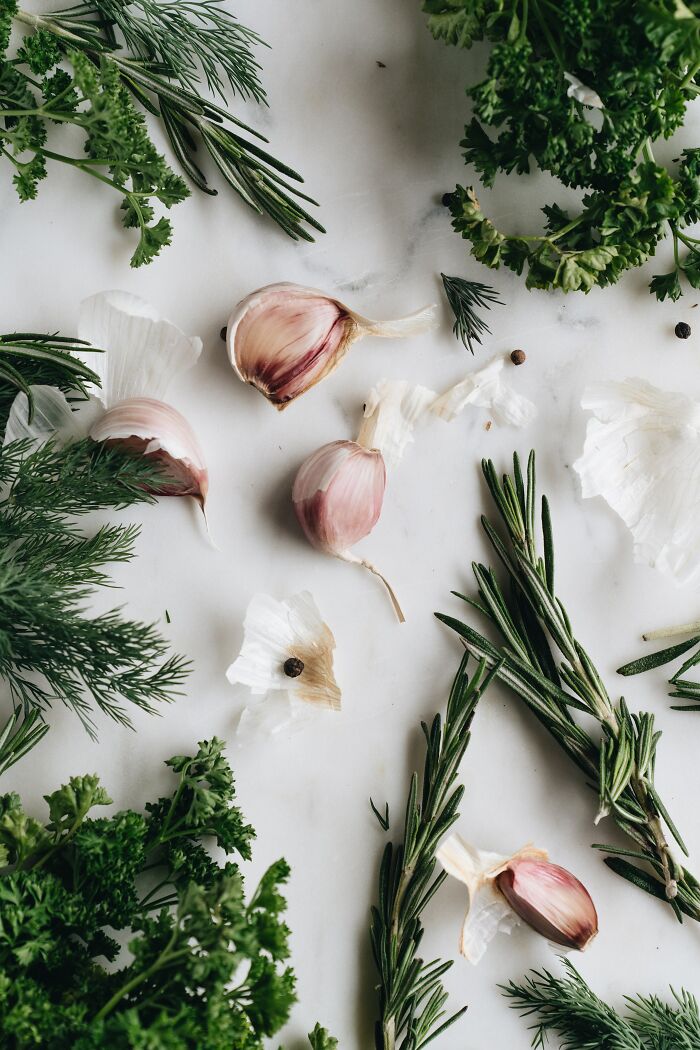 Just because you chopped all those onions (garlic, herbs, etc.), doesn't mean they all have to go into the dish.
Just because you chopped all those onions (garlic, herbs, etc.), doesn't mean they all have to go into the dish.
An art form, a skill, a science, a basic tool for human survival — whatever you want to call it — cooking is an important part of our lives that keeps us going and brings us together. Even if you’ve never picked up a skillet or a whisk, improving your culinary skills can significantly improve your quality of life. June added that even the best chefs, who dedicated years of training to master the skill, still make mistakes. So don't feel discouraged when it comes to cooking because it takes time and practice, and the more you do it, the easier it will get.
And as June told us, the culinary world keeps changing all the time. "New cooking techniques come up, and you can often find new ingredients at your local supermarket or farmers market. It is a never-ending story. You decide whether these new influences or flavors would really up your culinary game," she concluded.
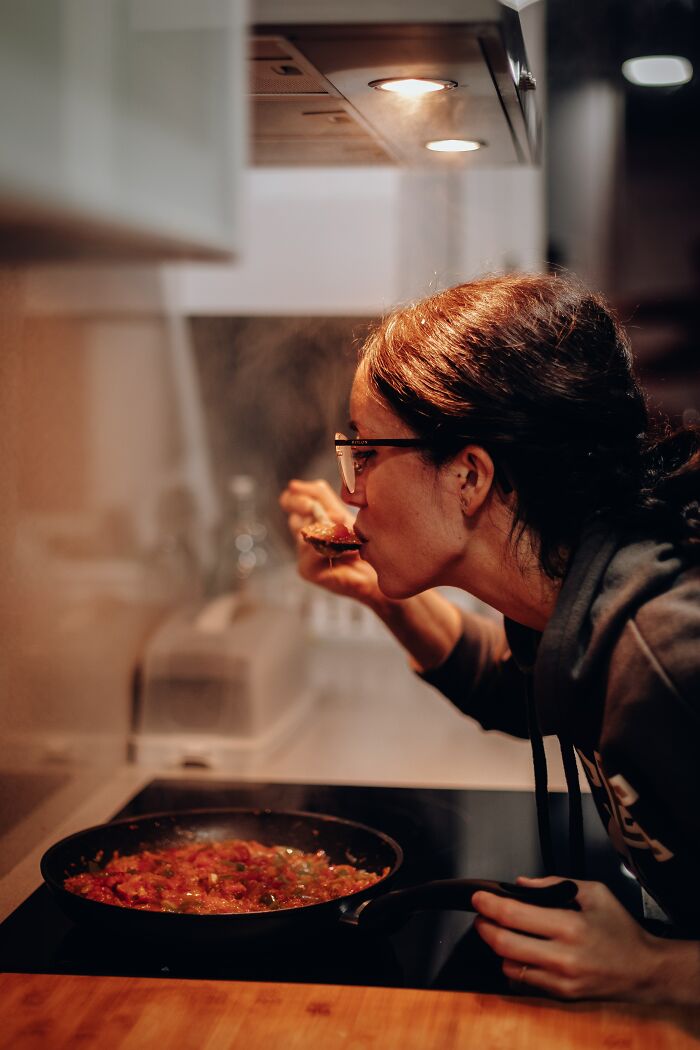 Taste as you go, even when for instance making meatballs: season them and cook a tiny simple then adjust if needed.
Taste as you go, even when for instance making meatballs: season them and cook a tiny simple then adjust if needed.
And please, for the love of all that is holy, do not put the used tasting spoon back into the food!
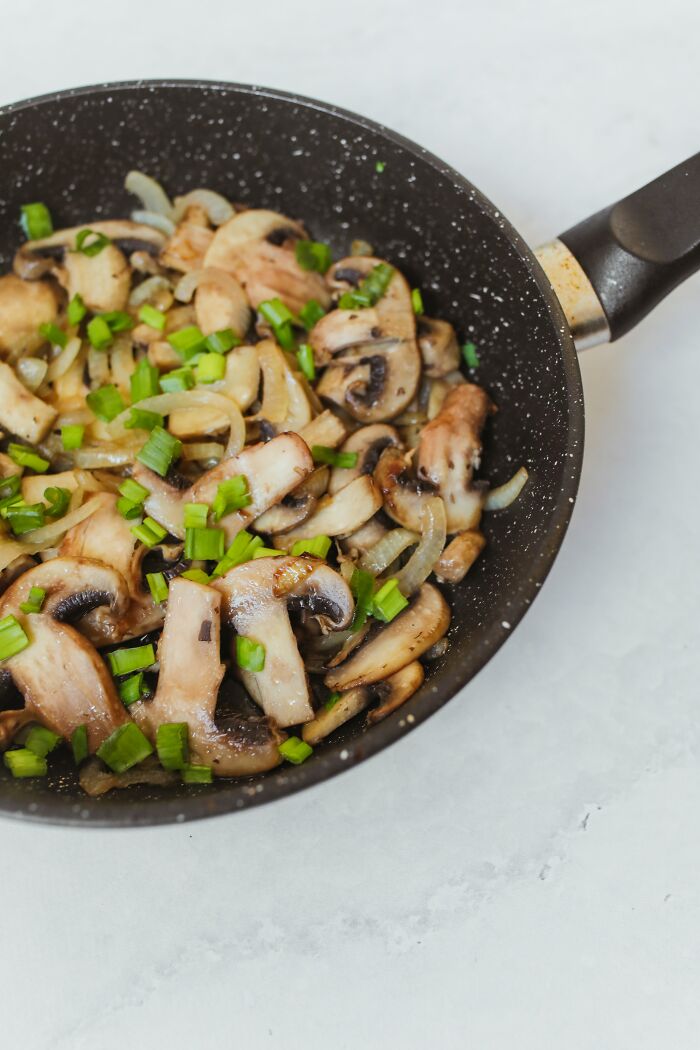 If you want the best fried mushrooms, fry them without any butter or oil.
There is so much liquid in mushrooms, that the won't burn for quite some time. Frying them like that, makes them sort of hyper concentrated. Once all the water has cooked of, add butter. They will suck up all that flavor.
If you want the best fried mushrooms, fry them without any butter or oil.
There is so much liquid in mushrooms, that the won't burn for quite some time. Frying them like that, makes them sort of hyper concentrated. Once all the water has cooked of, add butter. They will suck up all that flavor.
This one should be much lower on this list. If you "fry" mushrooms without oil or butter, you;re basically just drying them out. They get all tough and shrivelled and they definitely don't "suck up" any butter after they have been dried out like that. The literal definition of frying is to cook in hot fat or oil. The best method I've found is to not add salt to the mushrooms until they are nearly done. Salt draws out the moisture so you wind up just boiling them, so wait until the moisture has cooked off naturally.
I was surprised that I had to teach my husband the stove had settings other than high, and things WILL cook on lower settings !
My ex was horrible about doing this! Even worse with a grill. I love charcoal grills and when he would cook steaks his method was to throw these beautiful, thick, juicy hunks of meat on the grill with flames shooting up. If no flames were shooting a foot in the air he would go to squeezing massive amounts of charcoal starter fluid on the grill with the meat right there. Then he takes a huge cup of water, dios his hand in, and goes to flinging it across the grill racks, meat, veggies, the dog standing beside him, the plates on the side, and anything else in a 10 foot radius. He always wondered why nobody would eat when he was the chef. He also would grill chicken, pork chops, burgers, basically any meat this way. Crunchy, diesel smelling bricks on the outside and lumped up dry jerky on the inside. Mmmmm, good! Not!
If it's bland, add something fermented! A spoonful of miso will add so much depth and flavor to even a western style stew, and alcohol can save a sauce.
If you add a lot of alcohol, you won't care. LOL! (Added to yourself.)
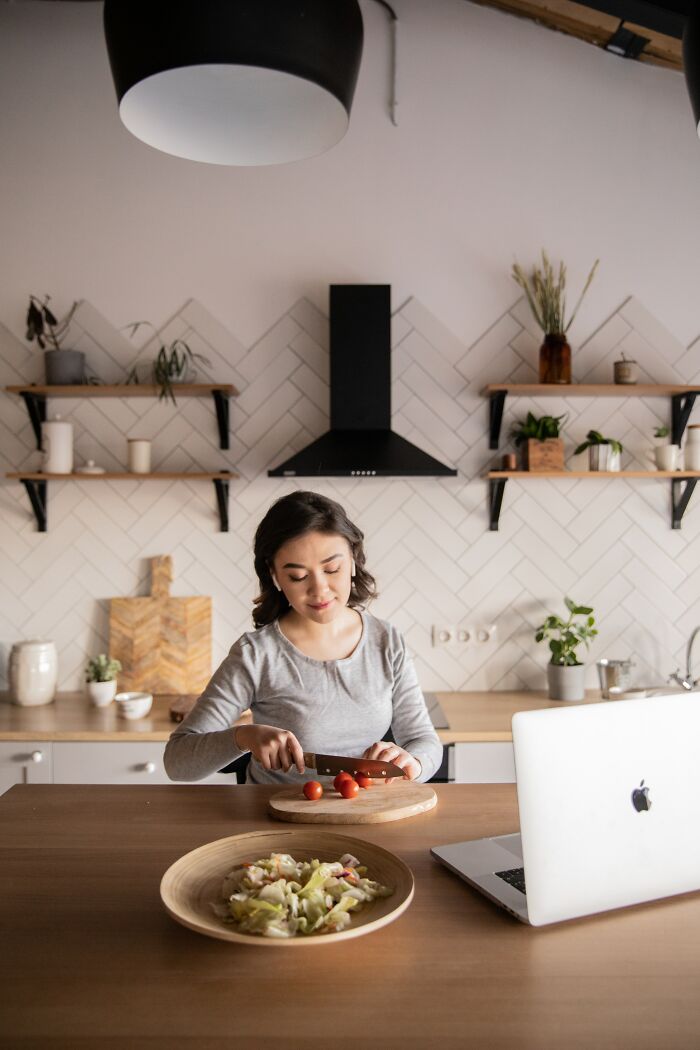 Use a scale to measure things. It's even easier if you set the scale to grams, not ounces. Much easier to scale a recipe up and down that way.
Use a scale to measure things. It's even easier if you set the scale to grams, not ounces. Much easier to scale a recipe up and down that way.
Also works well if you make extra to freeze. Weigh each bag so that you have equal portions.
A falling knife has no handle. Something that is hot enough to give you 3rd degree burns looks the same as it would at room temperature. If you have to walk with a knife, do not change directions in the stabby direction (counterclockwise for right handed people). Slow is smooth, smooth is fast.
Oven controls are wildly inaccurate. Get an oven thermometer and figure out how hot it really gets.
This! I kept burning food in the oven and couldn't figure out why, until I got an oven thermometer and realised the oven internal thermostat was broken - no matter what temperature I set in the dial, it always heated up to the max. It's really useful to know when the oven is preheated to the correct temperature as well (it takes A LOT longer that we might think)
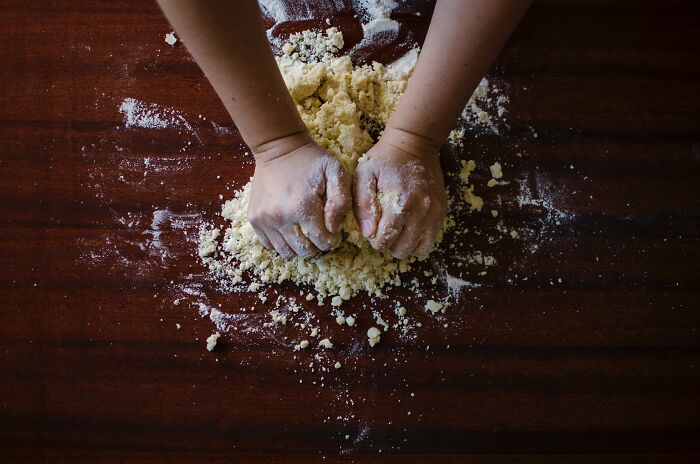 When I was 19, the grandmother of a friend taught me that it's easier to brown flour without any fat, just all by itself in the pan.
Brown the flour, let it cool, put it in a jar, add your liquid, cap and shake the hell out of it. Return to the pan, bring up to temp, THEN add your butter.
Life changing! I really used to struggle with fat coated raw flour trying to brown it.
When I was 19, the grandmother of a friend taught me that it's easier to brown flour without any fat, just all by itself in the pan.
Brown the flour, let it cool, put it in a jar, add your liquid, cap and shake the hell out of it. Return to the pan, bring up to temp, THEN add your butter.
Life changing! I really used to struggle with fat coated raw flour trying to brown it.
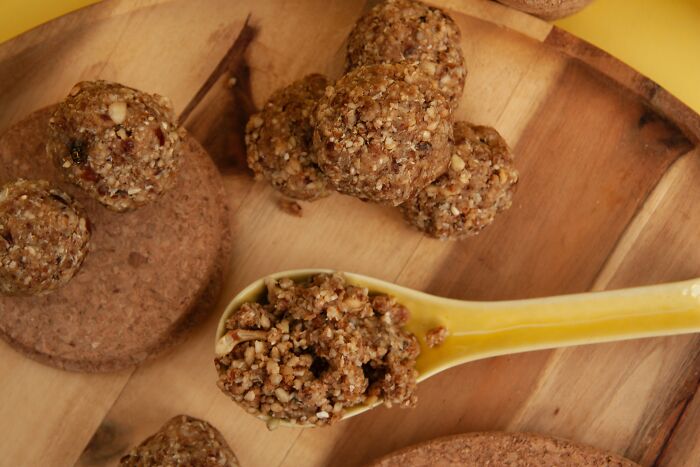 Brown your ground beef like you’re frying a giant burger. Get it nice and charred on both sides and only THEN break up the meat.
Brown your ground beef like you’re frying a giant burger. Get it nice and charred on both sides and only THEN break up the meat.
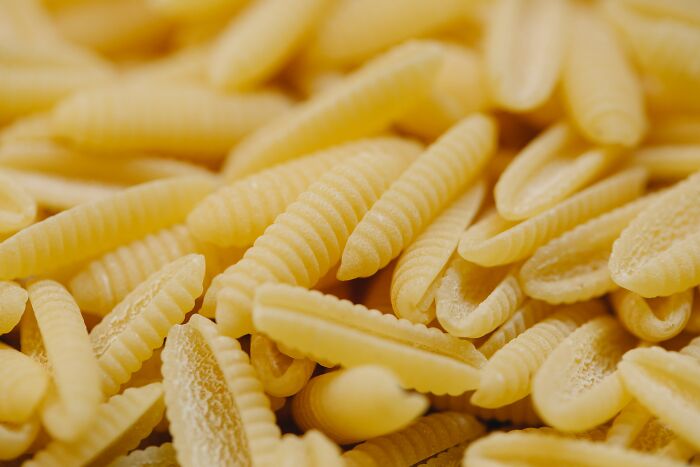 Dry the surface of your food if you want it to sear well.
Salt your meat (a lot) more than you think is necessary.
If your food is at the right level of sear but undercooked use the oven to finish it off (or just do the reverse sear method to begin with).
Get heavy baking sheets and preheat them in the oven when making roasted vegetables (great for Brussels sprouts).
Dry the surface of your food if you want it to sear well.
Salt your meat (a lot) more than you think is necessary.
If your food is at the right level of sear but undercooked use the oven to finish it off (or just do the reverse sear method to begin with).
Get heavy baking sheets and preheat them in the oven when making roasted vegetables (great for Brussels sprouts).
I'll have to try the preheating baking sheets for Brussels sprouts.
To use block cheese and grate it myself rather than buying pre shredded cheese. To use fresh garlic and mince it myself instead of using the jarred stuff. Yes this is two tips but a former boss of mine was totally justified in her horror of my terrible ways and she set me straight on noth of these points. I am so glad she did.
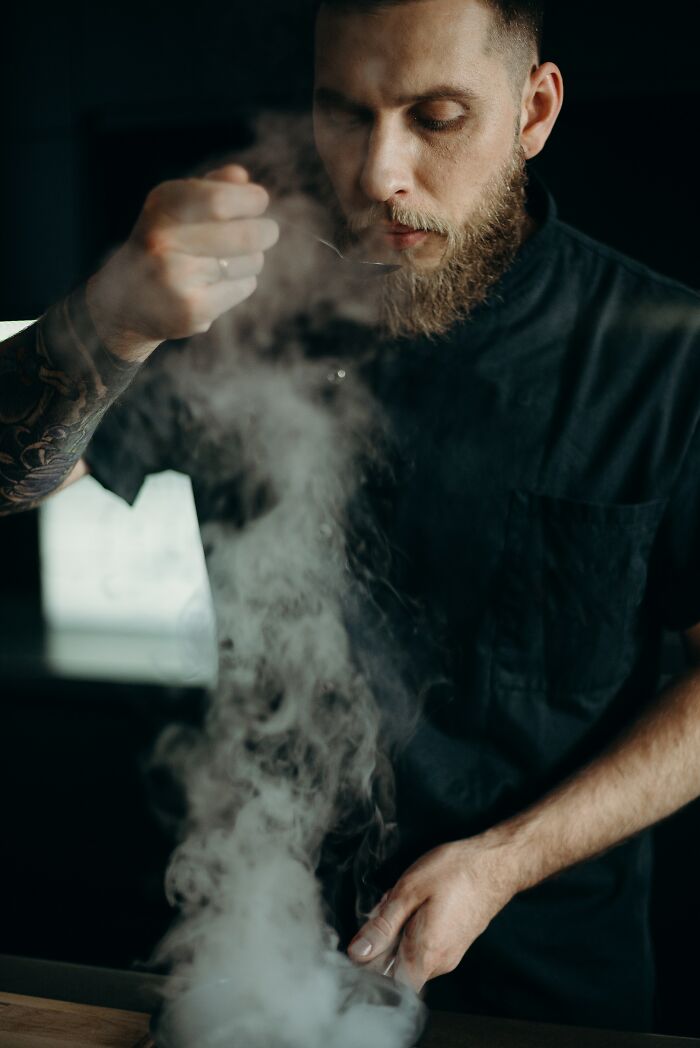 Taste whatever you're making. Do it all the time. Even if you're pretty sure you seasoned something right, dip a spoon in there and taste (finger if nobody is looking).
Not only does it help correct mistakes, it gives you a whole other level of understanding of how seasonings interact. My wife thinks I'm a magician because I can taste a sauce and go "needs something a little tart and a decent amount of sweetness" but really I've just tasted a thousand sauces a thousand times.
I even do it for stuff like meat seasoning, I'll dab a finger and taste to see if it's missing something.
Taste whatever you're making. Do it all the time. Even if you're pretty sure you seasoned something right, dip a spoon in there and taste (finger if nobody is looking).
Not only does it help correct mistakes, it gives you a whole other level of understanding of how seasonings interact. My wife thinks I'm a magician because I can taste a sauce and go "needs something a little tart and a decent amount of sweetness" but really I've just tasted a thousand sauces a thousand times.
I even do it for stuff like meat seasoning, I'll dab a finger and taste to see if it's missing something.
I've seen this one a few times, and I just want to caution any newer home chefs out there: only do this before you have added the meat, and after you can be certain the meat is cooked.
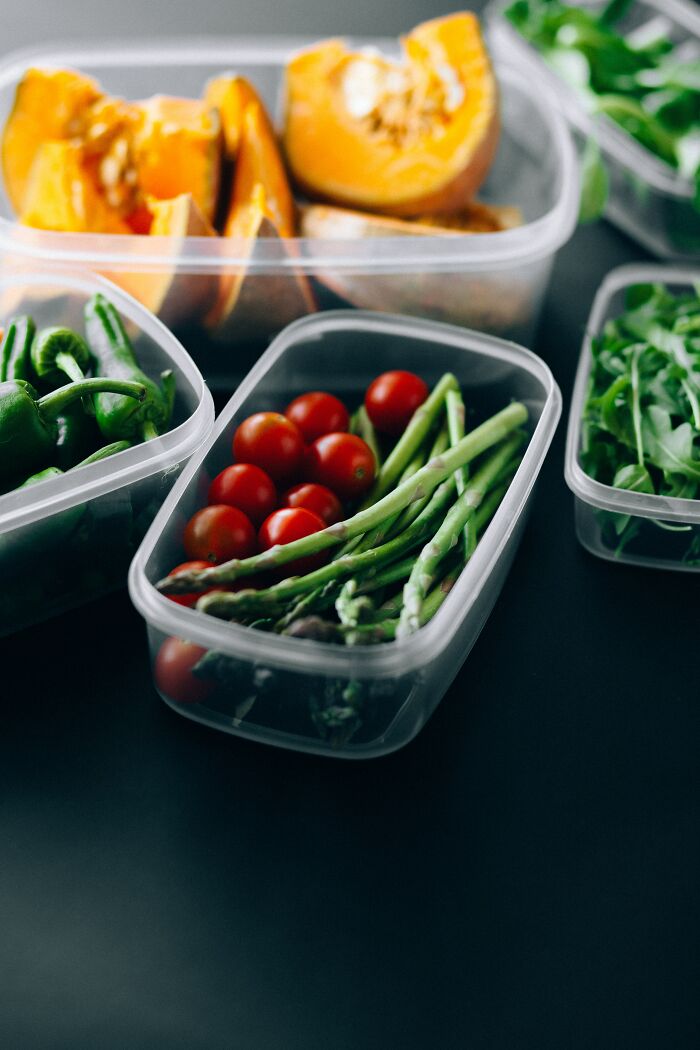 Mis-en-place, including an empty plastic container to collect garbage, peels, and other scraps. Even though it's only a few steps to the trash can it cuts down so much on mess.
Mis-en-place, including an empty plastic container to collect garbage, peels, and other scraps. Even though it's only a few steps to the trash can it cuts down so much on mess.
I can confirm. Learning how to do this made cooking & clean up much, much easier!
But know that things change as they cook. The amount of salt you put in at the beginning may be hard to taste, but reducing it down a lot really makes the salt and other flavors show up. Some ingredients change flavor as they cook (like wine in stews) if you're following a good recipe, trust it the first time, but taste it a bunch, so you can learn how it changes
Buy quality pans and pots. I spent almost 400 on my steel pots. It makes a complete difference in cooking. I fried chicken today the first time using my brand new pot and it cut cooking time in half. Usually im frying chicken for an hour . Its a lot of chicken, not just 1 piece. I learned when something is done it smells differently. From my mom. She never had a timer or kept checking anything she was cooking.
I use cast iron a lot but for my nonstick cookware I purchased an 18 piece set of Cordon Bleu cookware over 25 years ago. It was expensive but so worth it! I've never had to replace a piece or had any of it stick. I've watched my brother use cheaper sets purchased for around $100. He's had to replace those sets a lot during those 25+ years so he has lost more money it only on cookware but on food, too! Sometimes it does pay to go bigger.
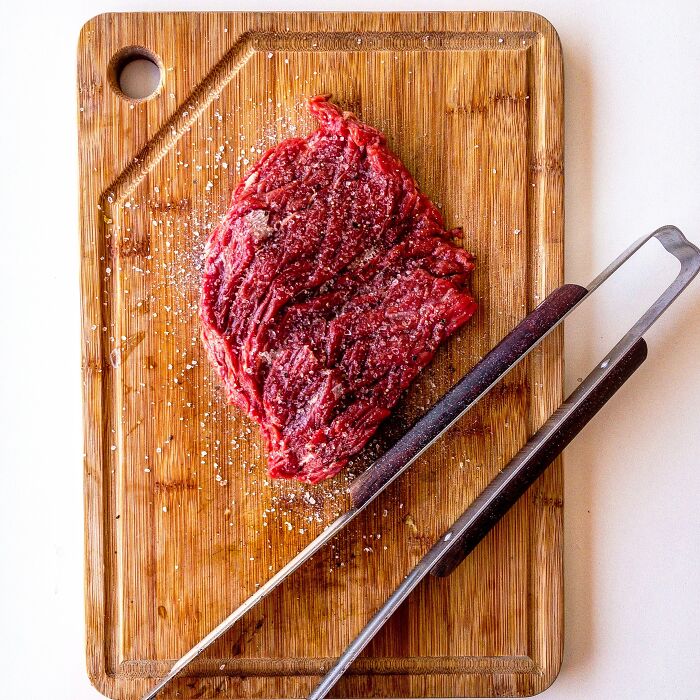 You can't take salt out of a dish. Potatoes really don't do the trick. Or coconut. Either accept a salty dish or start over
You can't take salt out of a dish. Potatoes really don't do the trick. Or coconut. Either accept a salty dish or start over
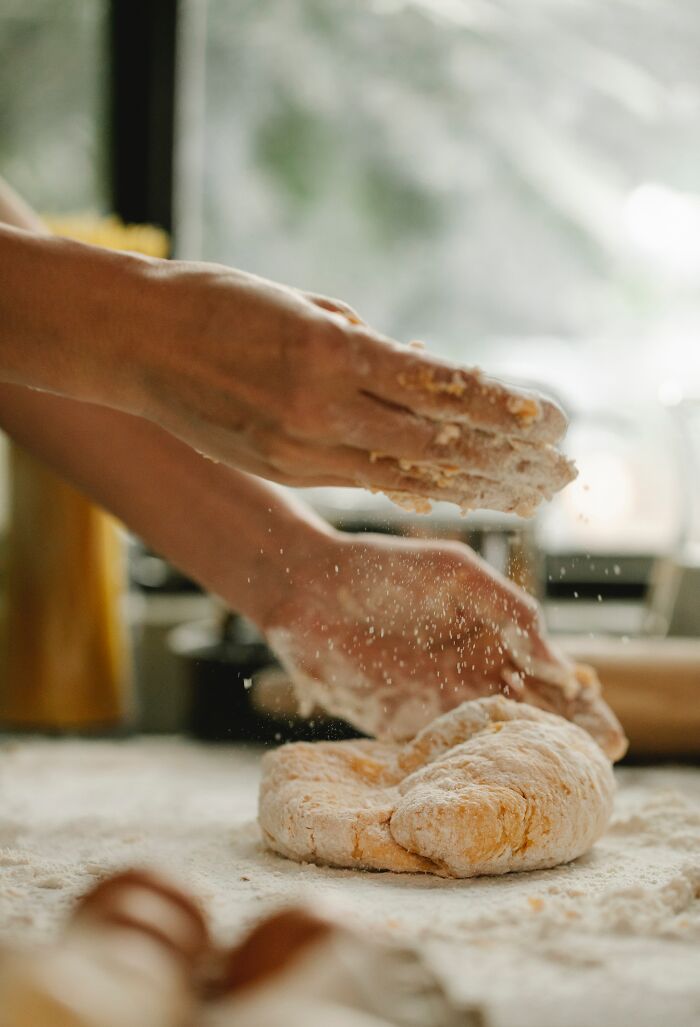 If you're baking something bready, just use bread flour. Plenty of online recipes say you can use all purpose, but your homemade pizza crust isn't going to taste "real" until you find a good bread flour and stop buying the cheapest all purpose flour in the store.
If you're baking something bready, just use bread flour. Plenty of online recipes say you can use all purpose, but your homemade pizza crust isn't going to taste "real" until you find a good bread flour and stop buying the cheapest all purpose flour in the store.
Season a day in advance on a wire rack in the fridge. The salt penetrates the food. The salt denatures the protein to hold water better so its not dry. The salt also dries the surface. AND the fridge dries the surface. I can serve my wife a salt and pepper skin on chicken thigh and she'll think its resturaunt quality. Also to render anything fatty start in a cold pan.
If an avocado looks like it could be ripe but still feels hard, roll it with gentle pressure on the counter. It’s likely ripe and this will break it up a bit and make it completely usable. Similarly, for limes, always roll them (with lots of pressure) before slicing into it, you get 10x more juice that way. Edit: forgot the word “avocado” 🤷🏼♀️
Someone once told me that you can see if the avocado is still nice and green (not brown and mushy) ... take off the little piece of stem and if the bit of avocado you can see is green and the avocado feels ripe then it's good to go. And yes, I tried it, it's true.
I wear nitrile gloves in the kitchen most of the time when cooking but especially when washing dishes. I started because I wore them in lab when doing grad research, but eventually it just felt better. Especially necessary for chopping peppers, but basically useful most of the time except when trying to peel garlic, in my opinion. My hands are less chapped and irritated by the constant wet/dry and I'm more likely to cook, win win. Latex works fine too. They're usually $ 10-20 a box and I will often reuse the gloves for several days so they last a really long time.
You can always add extra garlic but be careful of adding extra onion. It releases a lot of water when cooked
Season through your recipe. Not just at the end. In other words, season all your ingredients along the way as you prepare and cook.
"Authentic" doesn't mean better. Sometimes the best pizza dough, tomato soup, chilli, or whatever is a completely different flavour or ingredient list to what is used traditionally. I personally prefer a New York style pizza dough to neopolitan or romano for example.
Buy a flat whisk and a potato ricer. They’ll change your life for under $50
I love my flat whisk and use it all the time! It's great for making pan sauces.
Steak, chicken, eggs, etc. I always overcook everything to death. Max flame, both sides. At 2:40, Gordon says the food is still cooking, even when not on the heat. Mind was blown. https://www.youtube.com/watch?v=PUP7U5vTMM0 I now turn the flame off, flip it over, and let the food sit in the pan for a few minutes, no flame. Total gamechanger in terms of not overcooking everything.
LOL I was so confused that first line! "What kinda tip is that?!" Oof.
Mis en place is sorely underrated. It sounds obvious but I see people rushing to cut veggies while other stuff is in the pot. This is home cooking not some time trial or competition against no one
Even easier, blitz butter + dry ingredients in a food processor quickly. You get extremely even distribution and it doesn't overwork anything. Butter stays pretty ice cold too instead of starting to melt in
Get everything ready before you begin. Cook by temp not time. I smoke alot of food, and learned that time means nothing when smoking.
Cooking by temp is key for true bbq and smoking - also being patient enough to let it go past the stall point (esp. brisket).
1. Microwave garlic 5 - 10 seconds to peel it. 2. Instant pot. 3. Cast iron cooking. 4. Shred meat with a stand up mixer . 5. A new large toaster oven.
Never heard of microwaving garlic to peel. I usually place the clove on my cutting board, lay my knife flat on top of it, and smack it once hard enough to kinda crush it a bit. Skin slips right off!
Put a little bit of cornstarch slurry (cornflour and water) in your scrambled eggs (or any dish where you mix up the eggs) to stop them going dry and losing moisture. When you cook eggs at a high temp, the protein forms bonds which expels water from the eggs. The cornflour stops these bonds from forming as regularly, thus retaining more moisture!
The difference between good food and great food is in a pinch of salt. Just use a little more than you usually do and your food will be tastier.
I have been reading an excellent book called "Salt Fat Acid Heat" by Samin Nosrat. She discusses in great detail why and how each of those is important and the best ways to cook with them. She emphasizes the need to constantly taste the food as you cook it
She has a show by the same name on Netflix. Fascinating and well-presented.
Load More Replies...My mom always said that it's a lot easier to add seasoning than to remove it, so go easy and just keep tasting----cuz you can always throw more in.
I have been reading an excellent book called "Salt Fat Acid Heat" by Samin Nosrat. She discusses in great detail why and how each of those is important and the best ways to cook with them. She emphasizes the need to constantly taste the food as you cook it
She has a show by the same name on Netflix. Fascinating and well-presented.
Load More Replies...My mom always said that it's a lot easier to add seasoning than to remove it, so go easy and just keep tasting----cuz you can always throw more in.

 Dark Mode
Dark Mode 

 No fees, cancel anytime
No fees, cancel anytime 






